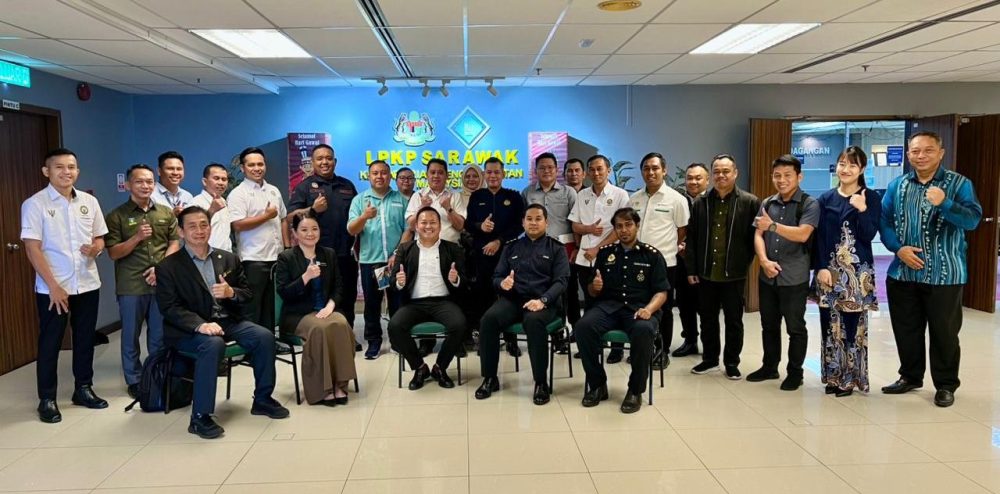
REAR row from right: Razami Mohamad Jamali (Timbalan Pengarah LPKP Sarawak), Yong Zheng Yang (MOT Sarawak).
KUCHING: Sarawak Commercial Vehicle Licensing Board (LPKP) convened a meeting today involving all 26 local councils across the state to address mounting concerns over the indiscriminate parking of commercial vehicles in residential and urban areas.
“This issue is not only disruptive but also poses a risk to public safety,” said Michael Kong Feng Nian, Chairman of LPKP Sarawak. “It is neither reasonable nor sustainable to rely solely on JPJ Sarawak for enforcement, especially when such actions have previously faced legal challenges within local authority areas.”
Kong stressed that local councils are legally empowered to act under Section 119(m) of the Local Authorities Ordinance, which enables them to take necessary measures to safeguard public safety and convenience on roads within their jurisdiction.
“We urge all councils to take proactive and firm action against illegal parking. The tools and legal authority are already in place—they must now be used effectively,” he added.
The meeting also served as a platform for LPKP Sarawak to call on councils to upgrade bus stop infrastructure.
“At the very least, there should be proper signage or basic shelter structures to mark bus stops clearly. These are not luxuries, but essentials as we develop an integrated and efficient public transport system,” Kong said.
He highlighted the significance of such infrastructure improvements in light of ongoing and upcoming initiatives like SBST Kuching, the Miri Smart Bus programme, and the future ART and Sarawak Metro feeder network.
To ensure sustainability, Kong proposed a forward-looking policy: “We recommend that local councils make it mandatory for new housing and mixed-use developments to include bus stop facilities. This will ensure that public transport accessibility is planned from the outset.”
Kong reaffirmed LPKP Sarawak’s commitment to collaborating with local councils and other stakeholders to improve vehicle regulation and public transport infrastructure for the benefit of all Sarawakians.
By Connie Chieng